Essential Program Elements
First Born Program characteristics
The First Born Model promotes positive health and mental health outcomes through prevention. This approach is a paradigm shift away from healthcare interventions that are reactive and available to families only after a risk is identified or an incident has occurred. The model represents a reorientation of child and human services toward early investment and prevention and away from attempting to “treat” poor outcomes later in life. Investing resources in early childhood produces better outcomes, saves money and improves overall quality of life in a community. One research studey estimated a 5.7 to 1 return on investment for every dollar spent on home visiting.*
The success of the First Born Program is based on the following Best Practices program characteristics:
Relationship-based approach
At the core of any successful home visiting program are relationships because all human development occurs both through and within relationships. This approach supports and respects each family’s unique abilities as well as their ethnic, financial, cultural, and linguistic diversity. All goals are family-driven.
Screening and assessments
Because infancy and early childhood are times of rapid growth and development, the First Born Program completes assessments and screenings at regular intervals to ensure that children and their caregivers are integrated into each community’s continuum of care.
Inclusion of parents/other family members
Because infants and toddlers are profoundly influenced by their parents, other family members, and their community, services are integrated within their families and community.
Staff/family ratios
Caseload size allows home visitors to devote adequate time to plan and build strong relationships with children, families and community.
Staff knowledgeable about very young children
The First Born staff is knowledgeable about infant and toddler development and is experienced in working with children and their families. The First Born training protocols are comprehensive.
Staff supervision and training
First Born staff receive regular reflective and administrative supervision and ongoing training opportunities and continuing education.
Core Curricula
The First Born Program has comprehensive and flexible core curricula written specifically for the model. The scope of the curricula includes the prenatal period, the first year of life, and the toddler years. The curricula are copyrighted, updated frequently, and are based on current prenatal and early childhood research. The model has also created, based on parent requests, a preschool curriculum, racial identity development curriculum and 2Gen Early Literacy Curriculum. These will be widely available as stand-alone curricula in the fall of 2023.
Multidisciplinary Coordination
For families involved with more than one service provider, services are provided in a coordinated fashion.
Intensity of services
Services are offered initially on a weekly basis to ensure a positive and effective relationship between the home visitor and the family. Service intensity may increase or decrease to meet the changing needs of families. Families receive at least 40 visits in the first year after their baby is born.
Strong evaluation component
Independent, external program evaluation is an ongoing priority and key component of the First Born® Program. The Program has been evaluated by New Mexico State University (2009) and the RAND Corporation (2016). The University of New Mexico Cradle to Career Policy Institute initiated a multi-year research project in 2023.
Transition planning
Transitions from hospital to home, from home visiting into a more intensive intervention program or from home visiting into a center-based program designed for three-to-five year olds are carefully planned to ensure continuity of services for the child and family.
*Karoly, Lynn A., M. Rebecca Kilburn, and Jill S. Cannon. “Early Childhood Interventions: Proven Results, Future Promise.” PsycEXTRA Dataset. RAND Corporation, 2005.


